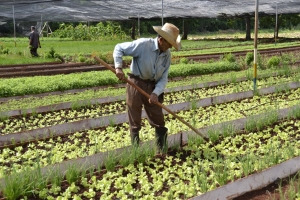
Havana, July 18 (RHC)-- The Climate Resilience in Cuba's Agricultural Ecosystems (IRES) project, implemented until 2027 in seven Cuban municipalities vulnerable to climate change, contributes to the country's forestry development.
This program is carried out by the Cuban Ministry of Agriculture (MINAG) with technical assistance from the Food and Agriculture Organization of the United Nations (FAO), according to a press release from that entity's office in Havana.
It includes the municipality of Los Arabos, in the western province of Matanzas; Corralillo, Quemado de Güines and Santo Domingo in Villa Clara, in the central zone, and Jobabo, Amancio and Colombia, belonging to Las Tunas, in the eastern region of the country.
The project's expected results include the development, discussion, and analysis of reforms that support the implementation of agroforestry and forestry systems to improve climate resilience and ecosystem services.
The Green Climate Fund finances this program, as reported at a recent workshop with the participation of executives from MINAG and the Ministries of Science, Technology, and Environment and Economy and Planning, and other institutions.
The event's primary purpose was to work on developing and improving public policies and management tools that contribute to developing the country's forestry sector.

